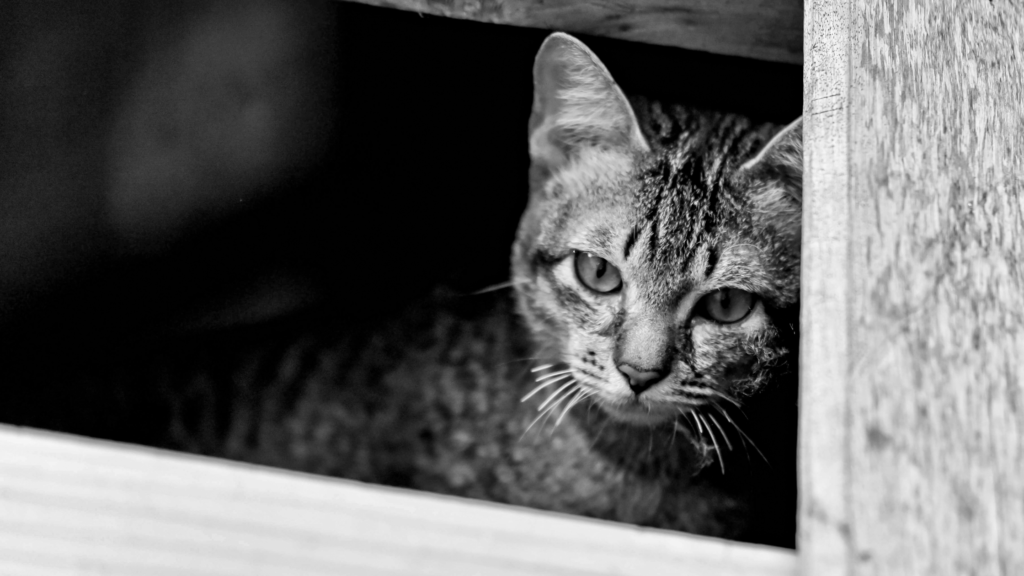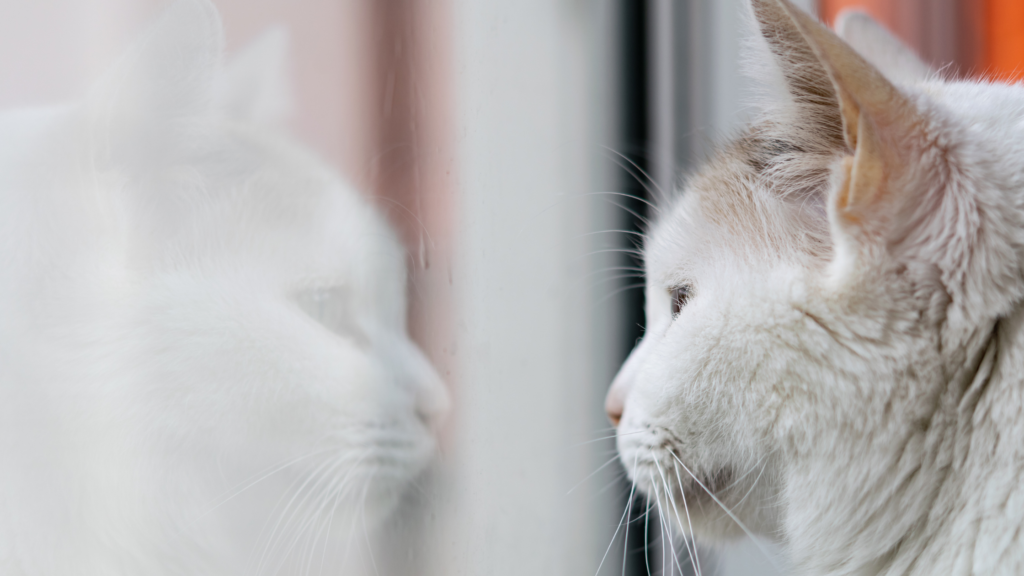
This article will help you to consider the real costs of getting a cat or kitten. Cats need much more than food, toys, and a bed! The responsibility of good ownership is likely to exceed £70.00 per month, per cat. With many cats living way beyond 16 years, you can do the maths!
In 2019, the RSPCA took 29,432 cats into their rescue shelters. Add to that the thousands more rescued by Cats Protection, Blue Cross, Battersea, PDSA, and the hundreds of small rescue charities working tirelessly to care for sick/injured, unwanted and abandoned cats and kittens.
Getting kittens or cats for children
Before we get into the nitty gritty, I want to make one thing clear. I am not opposed to children living with cats. In fact, the opposite! BUT, adopting a cat just because a young child ‘wants one’ is simply irresponsible. Cats should not be mistaken for toys – they are incredibly sensitive animals who have very real emotions.
Working in a rescue shelter, I’ve welcomed many new owners and their children to visit cats/kittens and I quite often witness what I’m sure is the beginning of a lifelong bond.
On one memorable occasion, a lady brought her 2 young sons (aged approx. 3 and 5) to visit a pair of kittens they were soon rehoming. As they left, she winked at me and said: “By the way, I must point out that these kittens will be mine. They are not for the children”.
My heart warmed. Not only had they offered a loving home in a quiet road, the boys had asked very thoughtful questions during their visit and shown kindness and compassion with the kittens and ‘Mom’ acknowledged her personal responsibility for these very precious lives.
Prior to this visit, Mom had visited alone to discuss the numerous responsibilities for cat ownership and had chosen which cat (or kittens in this case) were most suitable for their home environment.
This is a really sensible approach to rehoming as it removes the upset for children should they fall in love with a cat who is unsuitable for their home. Not all cats will be suited to every household and choosing the right cat, for the right reasons, will prevent heartbreak and misery further down the line.
The REAL and ONGOING costs of responsible ownership
Cats are a lifelong financial commitment – buying a kitten for a gift is like taking out a loan for someone else, over what could exceed 16 years!
Love is not enough.
More Purrs

I’m talking about the ongoing, lifelong costs (not just the initial ones like rehoming fees, microchipping, neutering, bedding, toys, scratching posts, litter trays, carrier basket etc)
According to the PDSA, monthly ongoing costs for one cat are likely to be a minimum of £70.00 per month.
That’s a minimum of £840.00 per cat per year and a minimum of £13,440 by the time they reach 16 years.
So, what are the costs?
- Food
The cost of food varies according to quality and there is lots of choice. To keep your cat in tiptop condition, look for the highest meat content % and buy the highest that your budget allows. Your cat’s age, physical condition and individual preferences should also determine what they need. When you register your cat with a vet, you will usually have an initial consultation which is a good opportunity to seek advice on the best food for your cat. You can buy most food in bulk online which can help to make expensive food more affordable.
Due to these variances it is difficult to give an idea of cost. Some cats will eat dry only, some will eat a combination of wet & dry and others may need a specialist diet.
Just to give you a rough idea – 1 pouch of cat food can range from 15p to 99p+ (how many pouches they eat however will depend on the above). Always make sure the food you choose is labelled as ‘Complete Cat Food’ which accounts for full nutritional requirements. Food labelled ‘Complimentary’ is designed to be fed as a treat.
- Insurance
Absolutely essential if you ask me!
Insurance is peace of mind that, if your cat needs medical care (either in an emergency, as a one off, or on an ongoing basis) you can provide for them.
Veterinary care, treatment, and medication is expensive and doesn’t only apply to old cats!
It is impossible to know in advance what veterinary care your cat will need, but let me share with you a quick story…
Last year, my youngest cat ‘Spooks’ started having breathing problems (similar to asthma attacks) aged only 18 months. Between April and October my vet bills, which included numerous emergency visits, referral to a specialist, diagnosis and ongoing treatment totalled approx. £3400.00
Fortunately, Spooks is insured with a high level of cover on a lifetime policy (which means I can claim back costs for his ongoing medication over the duration of his lifetime). This has been such a comfort, knowing that he can have the very best of care.
Like all insurance, you can shop around and look at different options. The policy I have for Spooks is £19.21 per month (and worth every penny!) but some good cheaper options are available.
*Note* not all veterinary fees will be covered by your insurance (always read the terms and conditions carefully).
- Flea/Worm/Parasite treatments
Preventative treatments are essential to maintain your cat’s health (and your own!). This applies to indoor cats too, not just those who go outside. Never wait until your cat has fleas, worms or mites to treat them, as this causes considerable discomfort/illness for the cat. Some parasites can be passed to humans too (gulp!) so it is in everyone’s interest to keep them at bay!
Your vet will advise which treatments are best for your cat and how frequently to give them. They will prescribe a product which is safe and effective based on your pet’s age and weight.
Don’t be tempted to buy cheap flea/worm products i.e. online or from supermarket shelves. The danger is that the products may be too strong for your cat (risking fatality) or not strong enough (meaning that they are not effective).
Some veterinary practices have introduced payment plans to help spread the cost of essential care.
To learn more about parasites & how they endanger your cat’s health click here.
- Annual Vaccinations
To protect your cat from serious/life threatening diseases, annual vaccinations are essential. Kittens are usually vaccinated at 8 weeks, and again 3-4 weeks later. After this, an annual booster maintains protection for your cat. It is important to keep on top of when the booster is due as your cat may need to be re-vaccinated again if the timeframe for a booster has exceeded.
Prices of annual vaccinations/boosters usually range between £30-45.00. As above, many practices now offer healthy pet payment plans which spread the cost of regular treatments over a year.
To learn about the importance of vaccinating your cat click here.
- Holiday Arrangements
It is important to consider who will take care of your cat/s when you go on holiday, and how much this is likely to cost. You may be fortunate to have a good neighbour who is willing to pop in daily, or a friend/family member who can live in.
These options are likely to be cheapest (and nicer for your cat, for whom its business as usual!)
Alternative options are Boarding Catteries, Professional Pet Sitters (or those who provide a daily ‘pop in’ service).
Again, prices will vary depending on the organisation and services may differ slightly.
Read our essential guide for choosing a good cattery (don’t only look at price!).
Love is not enough
Despite good intentions, giving cats/kittens as gifts is rarely thought through. The act of ‘giving’ takes over, and people don’t often think how, beyond the grand gesture of love and excitement, there is a lifelong responsibility and financial commitment (possibly exceeding 16+ years). Kittens are hard work and require huge amounts of time and attention. They will, very quickly grow into adult cats and it’s important to consider your expectations. For example, it is unrealistic to assume that a kitten who is affectionate will turn into a ‘lap cat’ or, that a quiet, shy kitten won’t be tempted to climb up your expensive curtains. The ONLY way to guarantee these desirable traits is to buy a soft toy.
Dangerous reasons for buying cats/kittens as presents are as follows (all of which I’ve heard on many occasions):
- Buying to stop my Mom/Aunt/Uncle/Cousin feeling lonely
- Buying so my children have something to play with
- Buying for my parents/grandparents because they’ve recently lost their cat
- Buying as a surprise for my Mom/sister/brother
- Buying because my friend needs cheering up
- Buying because my Dad/Sister/friend loves ginger cats
Cats/kittens who are ‘bought’ for these reasons often suffer the consequences. Many are given up for adoption (real examples below) – or worse, abandoned.
“the cat hardly ever comes home because the children don’t leave ‘it’ alone”
“the cat has scratched my child – it’s unusual though as they can normally do anything to him”
“I prefer them when they are kittens”
“He was brought as a present, but I don’t want him as I go on holiday all the time”
“I bought her for my daughter, but she never bothers with him anymore and her partner doesn’t like cats”
“he was bought as a present for me but I can’t afford him”
“My son gave me the cat, but ‘it’ is ruining my furniture”
“It won’t sit on my lap and doesn’t want to be picked up”
Sadly, these are all real comments that owners have given when looking to rehome their cats.
Making the right choice

Hopefully this article has helped you to evaluate the real costs and risks associated with buying cats as gifts. There is so much more to it than love. It must be responsible love, which is costly.
Cats who are truly wanted and loved responsibly will no doubt bring an abundance of pleasure to their owners. Sharing your home with cats can be incredibly rewarding but, please, only make decisions based on what you are willing to take responsibility for, and reduce the number of unwanted and abandoned cats in the UK.
